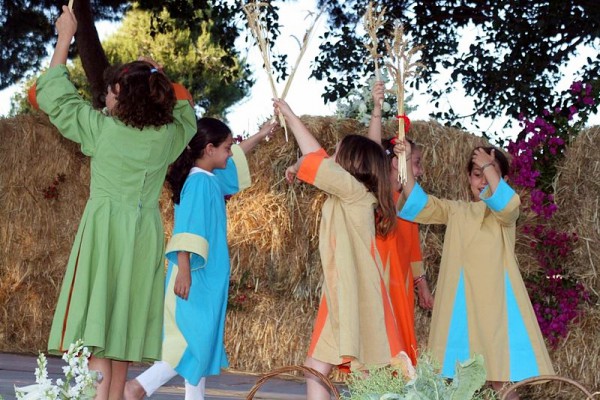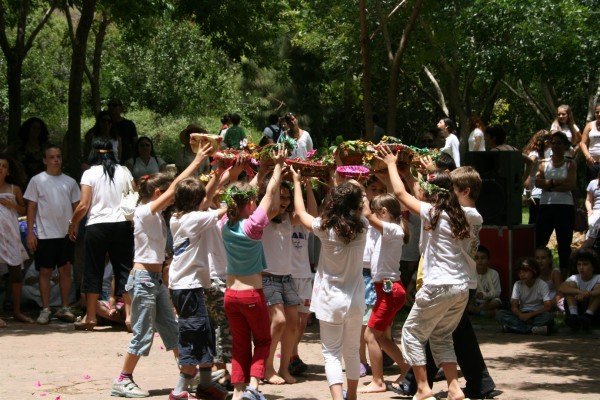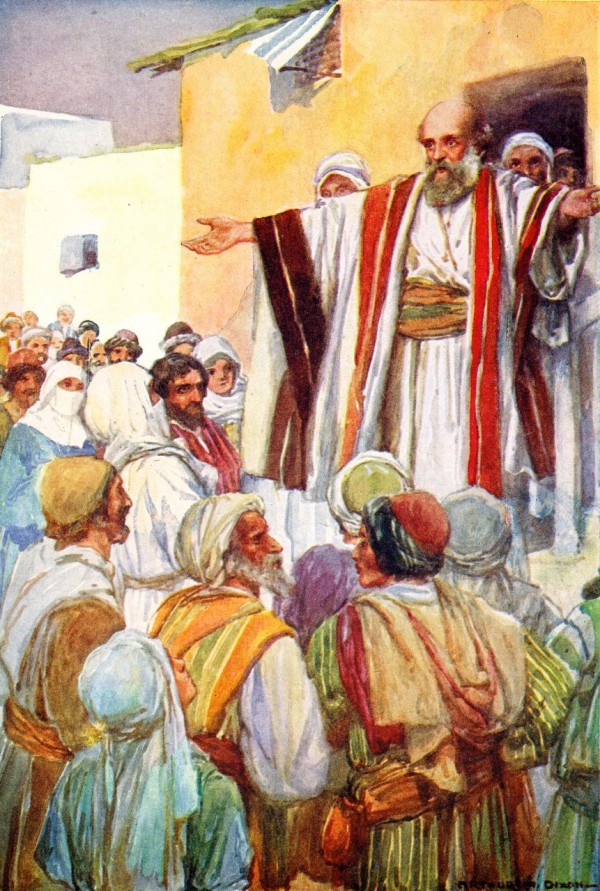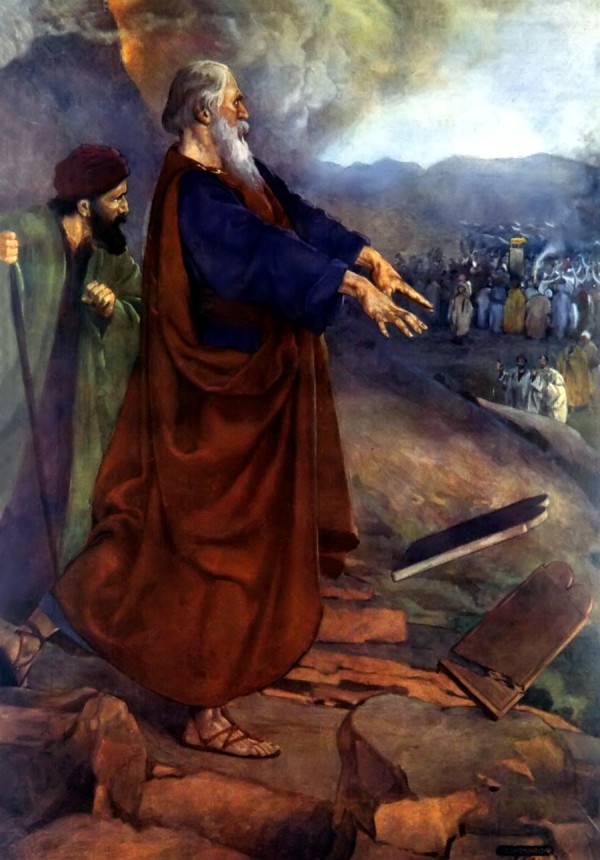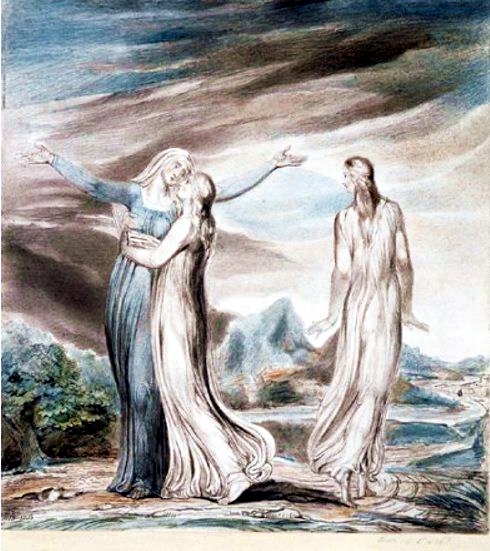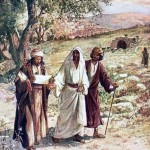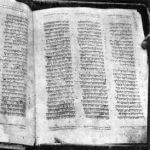“From the day after the Sabbath, the day you brought the sheaf of the wave offering, count off seven full weeks (Shavuot).” (Leviticus 23:15)
Have you ever wondered why Shavuot is not a fixed date on the Jewish calendar but is instead counted 50 days from Passover? Or why Hellenist Jews called this holy festival “Pentecost” (Fifty), a name that emphasizes this aspect?
The 50 days comes from the Torah’s command to count the seven weeks until Shavuot beginning on the day after the first Sabbath of Pesach (Passover). This counting period is called Sefirat HaOmer (Counting the Omer).
Sefirat HaOmer begins with a wave offering of barley and continues for 49 days (7 days x 7 weeks = 49 days) until the wheat offering on Shavuot.
The number 49 in Judaism represents the natural end of a full cycle or a full quota or measure. The word for measure in Hebrew is middah (מדה), and this word has a numeric value of 49. So the number 49 represents the epitome of a good measure. (Jewish Wisdom in the Numbers)
Moving from 49 to 50 can represent moving through all the natural stages into the supernatural since 50 in Judaism is the number of transcendence. It also represents a designated endpoint.
For instance, the Exodus from Egypt can be seen as the beginning of 50 days of ascending redemption for the Jewish People, beginning with the redemption at Passover and ending with the pinnacle of Shavuot—the giving of the Torah at Mount Sinai.
God uses this same Biblical pattern for weeks of years. After 49 years (seven cycles of Shemitah years — a sabbatical rest for the land every seven years), a Yovel (Jubilee) is reached on the 50th year, which represents freedom and liberation.
This fiftieth day on Pentecost, therefore, also points to the year of Jubilee, at which time the shofar (ram’s horn) would sound, all slaves would go free, and all debts would be cancelled.
“And you shall consecrate the fiftieth year, and proclaim liberty throughout the land to all its inhabitants. It shall be a jubilee [yovel] for you, when each of you shall return to his property and each of you shall return to his clan.” (Leviticus 25:10)
Of course, the number seven is also significant. Seven is a number representing wholeness, perfection and completion; for example, in six days, God created the universe but on the seventh day, His work was completed and, therefore, He rested.
Following this pattern of the counting of the Omer — seven weeks of seven (49) that lead to a day of harvest and transcendence — we are also counting down the days in the expectation of a supernatural harvest when all will be complete and perfect.
During the Messianic reign, faithful followers of Yeshua (Jesus) will rule, reign, and judge with Him in a world that recognizes the God of Israel. (Revelation 2:26–27; 2 Timothy 2:12; 1 Corinthians 6:2–3)
Now that is the epitome of transcendence.
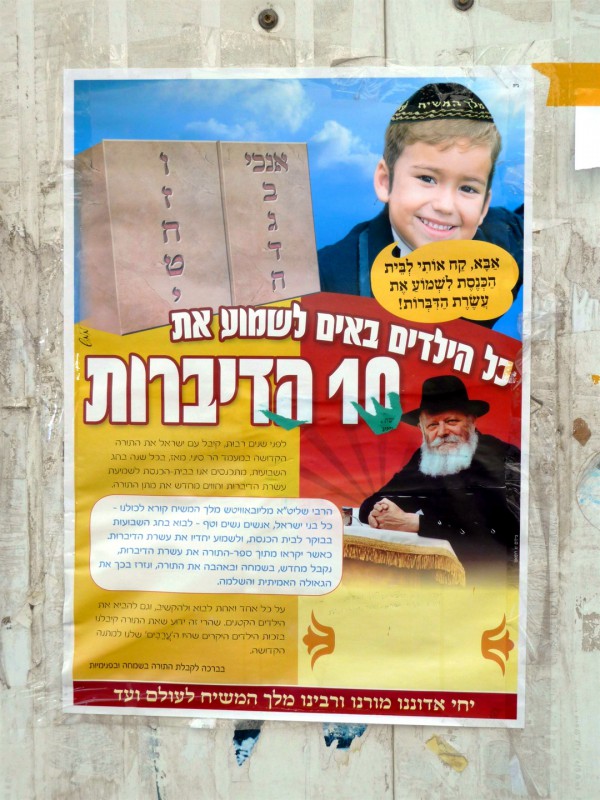
The boy in this Jerusalem Shavuot poster asks, “Daddy, bring me to the synagogue to hear the Ten Commandments.” The rabbi below him is Rabbi Schneerson, whom many Chabad-Lubavitch members proclaim to be Messiah. The Hebrew writing in the red box at the bottom states, “Long Live our Master, our Teacher, and our Rabbi, King Messiah, forever.”
Preparing to Receive the Torah on Shavuot
Because the Holy Temple is no longer standing in Jerusalem, the Jewish People can no longer bring an offering of the omer (sheaf); nevertheless, the counting is still observed.
This 50-day period, which culminates with Shavuot, is considered a journey of self-discovery and refinement, a time to reflect on our character, to prepare ourselves to receive and live out God’s transcendent Word.
According to Rabbinic tradition, Shavuot commemorates the giving of the Torah at Mount Sinai (although Scripture does not explicitly state this).
Receiving the Torah seven weeks after their miraculous Exodus from Egypt meant not only accepting the privilege of living as God’s set apart people; it also meant accepting the responsibility.
It became the agreed-upon standard of behavior or code of conduct for both the native born Israelite and the stranger who came to join them.
“One law [torah achat] and one custom shall be for you and for the stranger who dwells with you.” (Numbers 15:16)
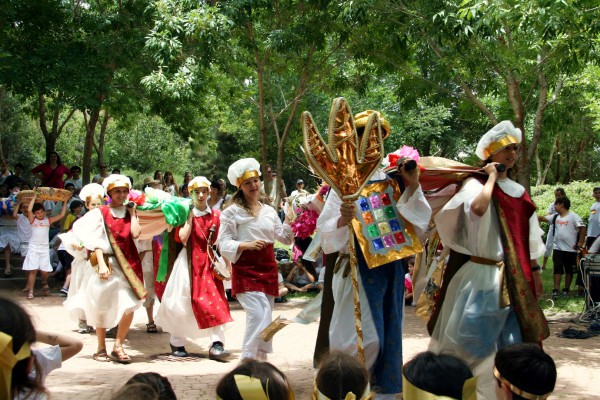
Israeli school children re-enact the bringing of the first fruits to Jerusalem on Shavuot. (Photo by Gil Eilam)
Shavuot: The Bride and the Bridegroom
The Torah is so much more than a list of rules, and Mount Sinai was not simply a place to receive the law.
It represented the sealing of a Covenant between God and His people, as a Bridegroom with His beloved Bride.
The message of Shavuot is that the Jewish People are significant to God.
He has chosen, appointed, and anointed us to proclaim and live out His purposes in this world by bringing us into His covenantal relationship through accepting His Torah.
Now that God has given us the Torah, He has entrusted us with a sacred mission — to spread its light to all the nations.
Likewise, Yeshua’s final words to His followers were to go and make disciples of all the nations, teaching them all God has commanded. And He connected that directive to Shavuot!
“Go and make disciples of all nations, immersing them in the mikvah in the name of the Father (Av) and Son (Ben) and Holy Spirit (Ruach HaKodesh), teaching them to observe all the things I have commanded you.” (Matthew 28:19–20)

In many Sephardic Jewish congregations, a ketubah l’Shavuot (marriage certificate for Shavuot) is read prior to the reading of the Torah on Shavuot. The ketubah is a symbolic betrothal of God and Israel.
Supernatural Power on Shavuot
Is Shavuot mentioned in the Brit Chadashah (New Testament)?
Is this ancient Biblical festival relevant to New Covenant followers of Yeshua today? Definitely! God chose this day to empower His people with the Ruach HaKodesh (Holy Spirit).
It is no accident that God chose this very day to pour out the Ruach on Yeshua’s disciples, who had been waiting in Jerusalem in obedience to His final instructions:
“Do not leave Jerusalem, but wait for the gift My Father promised, which you have heard Me speak about. For John immersed with water, but in a few days you will be immersed with the Ruach HaKodesh. … You will receive power when the Ruach HaKodesh comes on you; and you will be My witnesses in Jerusalem, and in all Judea and Samaria, and to the ends of the earth.” (Acts 1:4–8)
What an awesome event in history!
On Shavuot, Adonai supernaturally poured out the Ruach HaKodesh on Yeshua’s followers so they were empowered to live a holy, Spirit-led life and be his witnesses — in Jerusalem, in all Judea and Samaria, and to the ends of the earth!
They moved out of the realm of the natural into the supernatural, and so can all believers in Yeshua.
While keeping the Torah is not how we are saved, we nevertheless strive to live holy lives. That holiness leads us to love, which is the whole point of the Torah.
“For the whole Law is fulfilled in one word, in the statement, ‘You shall love your neighbor as yourself.'” (Galatians 5:14; see also Leviticus 19:18)
Yes, Shavuot is a very important festival for all followers of Yeshua, both native-born and those “wild branches” grafted into the natural olive tree.
In a wonderful representation of this, two loaves of leavened bread called the Shtei HaLechem were brought to the Temple and offered on Shavuot. Those loaves can be understood to represent Jew and Gentile.
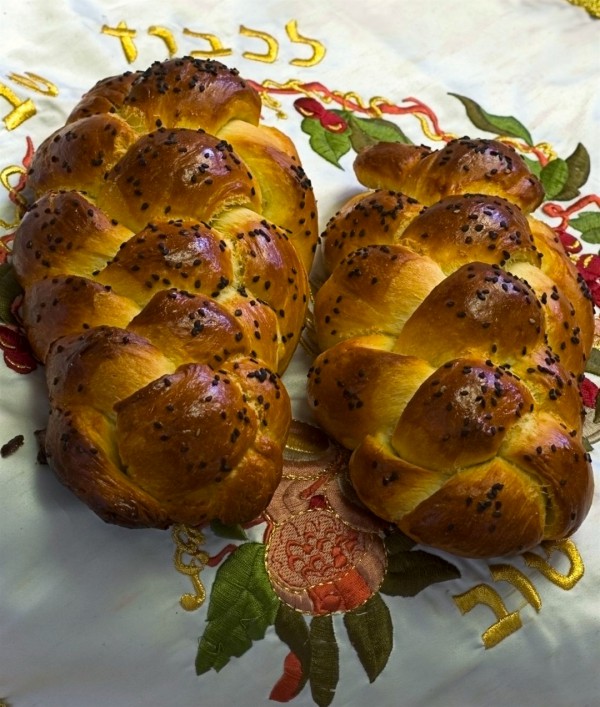
“Bring two loaves made of two-tenths of an ephah of the finest flour, baked with yeast, as a wave offering of firstfruits to the Lord.” (Leviticus 23:17)
Although Shavuot is considered by many as the “birth of the Church,” the Brit Chadashah reports that the people who experienced the Ruach HaKodesh at this time were God-fearing Jews from many nations:
“Now there were staying in Jerusalem God-fearing Jews from every nation under heaven.” (Acts 2:5)
On that Shavuot, Israel saw an amazing reversal that goes all the way back to the days of Moses. After receiving the Torah at Mount Sinai, 3,000 souls perished because of the sin of the golden calf. (Exodus 32:28)
On this same day all those years later, this same number of souls were saved after the Ruach HaKodesh was poured out! About 3,000 people were added to the community of Believers on Shavuot. (Acts 2:41)
The Spirit of God reversed the destruction caused by sin!
Yeshua’s followers worked tirelessly to bring the Good News to all of Israel and then beyond to the Gentiles.
Exercising Love and Generosity
One of the very first things these Believers did after receiving the Spirit of God was form a kind of Messianic kibbutz (communal lifestyle) where they shared all things in common. (Acts 2:44, 4:32)
They were so changed by receiving the Spirit that they no longer lived to fulfill their own selfish desires; they shared all they had with anyone in need.
May each of us experience the Ruach HaKodesh in a fresh, new, and powerful way this year on Shavuot, transforming our hearts, and making us generous givers who respond to the needs of others.
God gave us two of His most priceless gifts on this day: the Torah (His Holy Word) and the Ruach HaKodesh.
We need both Truth and Ruach. The Torah is the Word of Truth (Davar Emet), but it is the Spirit that gives us the grace to live out that Truth in our daily lives. One of those Truths is the concept of celebrating God’s goodness through giving.

It is traditional in Israel for children to make and wear zer prachim (floral head-wreath) on Shavuot. As an agricultural holiday, the use of plants and flowers for decorating at Shavuot is fairly common. As well, Jewish legend has it that Mount Sinai burst into flower at the giving of the Torah. (Photo by Dany Sternfeld)
Celebrating the Goodness of God
“Three times a year all your men must appear before the Lord your God at the place He will choose: at the Festival of Unleavened Bread (Passover), the Festival of Weeks (Shavuot) and the Festival of Tabernacles (Sukkot). No one should appear before the Lord empty-handed: Each of you must bring a gift in proportion to the way the Lord your God has blessed you.” (Deuteronomy 16:16–17)
Shavuot is one of the three pilgrimage festivals in which the Jewish People would come to Jerusalem to bring their offerings to the Temple. The people were to come before the Lord with offerings directly proportional to how the Lord had blessed them.
Of course, the Word of God exhorts us to give throughout the year to the Levites (those who serve God in the Holy Sanctuary as ministers and teachers of the Word), as well as the foreigners, the fatherless, and the widows.
We see in Scripture that the blessings God has blessed us with are not just for our own gain. We are to share with others who are in need. It was for this reason that God also commanded the people not to harvest the entire field but to leave the corners of their fields for the poor.
“When you reap the harvest of your land, do not reap to the very edges of your field or gather the gleanings of your harvest. Leave them for the poor and for the foreigner residing among you. I am the LORD your God.” (Leviticus 23:22)
Therefore, the traditional Scripture reading for Shavuot is the Book of Ruth who gleaned in the fields of Boaz. Jewish tradition calls for all to study the Book of Ruth together on the eve of Shavuot.
God never asks us to do anything that He has not already done.
We can’t out-give God. He is the most generous giver.
One of the best-known Scripture from the Gospels, John 3:16, says that “God so loved the world that He gave His only begotten son, so that whoever would believe in Him would not perish but have eternal life.”
Please pray that at this harvest festival, the Lord of the Harvest (Adon HaKatzir) will send forth more laborers into the harvest fields of Israel and that the harvest of souls into His Kingdom will be plentiful!
“Then He said to His disciples, ‘The harvest is plentiful but the workers are few. Ask the Lord of the harvest, therefore, to send out workers into His harvest field.’” (Matthew 9:37–38)




